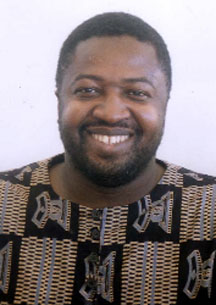Dr David Hinds and Dr Norman Ng-A-Qui say that the Afro-Guyanese community should be in total control of the management of the national efforts to seek reparations from former European colonisers.
The two men, who have ties to the Cuffy 250 Committee and the African Cultural and Development Association (ACDA), agree with efforts by Caricom to solicit reparations from colonisers who once brought and forced Africans to work as slaves in varying capacities in colonies across the Caribbean.
However, in the case of Guyana, they say the country’s activities should be directed by the Afro-Guyanese community as opposed to their mainly Indo-Guyanese executive government representatives.

Ng-A-Qui told reporters on Monday that Africans, for centuries, were the subject of abject conditions under slavery until it was abolished in 1838.
The other races, he said, did not come into play until after the abolition of slavery, and therefore were not subject to the circumstances under which their African counterparts suffered.
It should therefore be left to the Afro-Guyanese community, he reasoned, to handle the process as it concerns them alone.
Hinds said that he is not comfortable with the way the process was being rolled out, and, like Ng-A-Qui, suggested that it be planned and directed by those whose ancestors were the subjects of slavery.
Hinds also believes that the Government of Guyana owes its Afro-Guyanese populations reparations for playing a role in appropriating their ancestral lands and distributing it to members of the public, including the “private elite.”
Hinds pointed out that the fore parents of current Afro-Guyanese bought these lands with the money they worked for and pooled together, and said that any appropriation of these lands by government amounts to “stealing.”
The situation, Hinds said, is similar to the issue of Amerindians having rights to their own ancestral lands.
The Caricom Heads of Government adopted a Regional Strategic and Operational Plan for a Caribbean Reparatory Justice Programme (CRJP) during its July 1 to July 4 meeting in Antigua.
The programme was put together by the Regional Reparations Commission and is to be a basis for further action on slavery reparations.
A communique from the meeting said that Heads of Government agreed to dispatch a Draft Notice of Complaint from the Chair of the Prime Minister-ial Sub-Committee (PMSC) on Reparations, Freundel Stuart, Prime Minister of Barbados, to the relevant European Govern-ments with a request that a Conference be held on the issue. Such a Conference is proposed to be held by the end of 2014 or early in 2015.
Heads of Government also agreed to forward the reparations case during the sitting of the UN General Assembly in 2014 through their statements and other forms of engagement.
They also agreed to convene the Second Regional Conference on Reparations in September 2014 to heighten public dialogue and civil society engagement.
An academic conference is also planned for late 2014 as a collaborative effort between Caribbean universities and the University of Essex.
At this forum, expert opinions and scientific evidence would be presented in a bid to reach the regional, European and international public.





